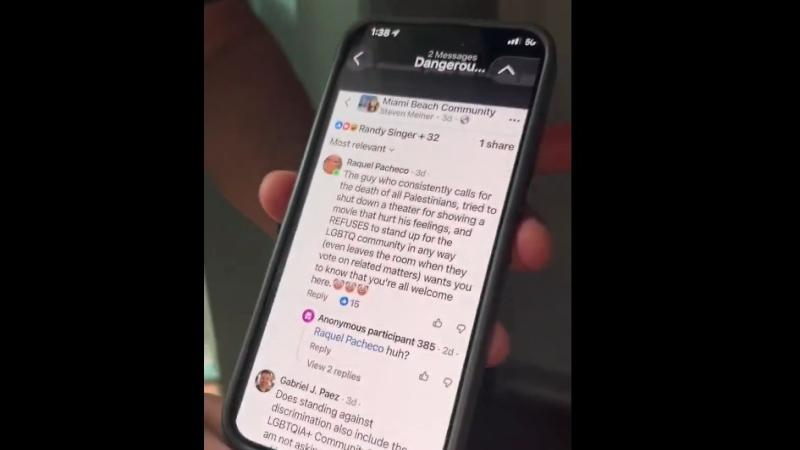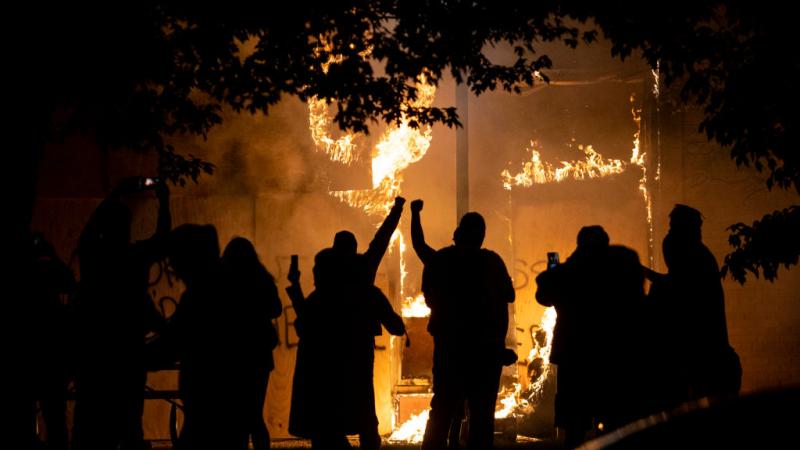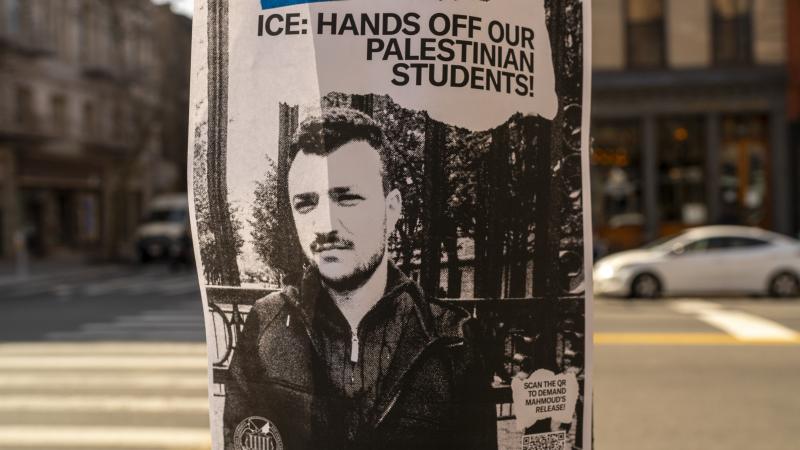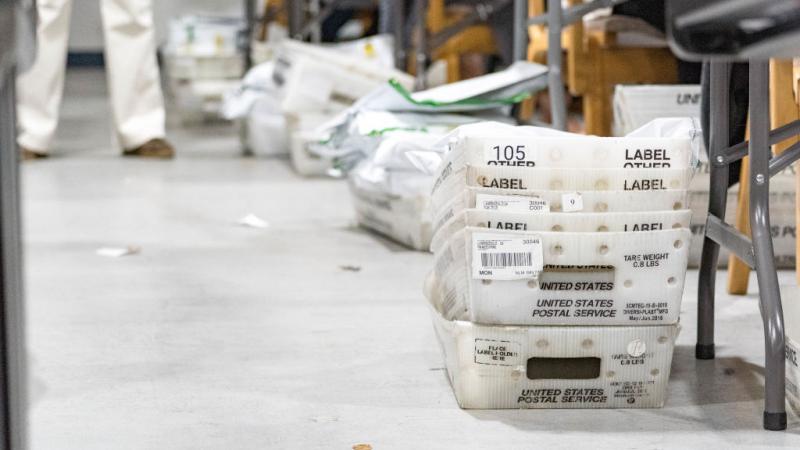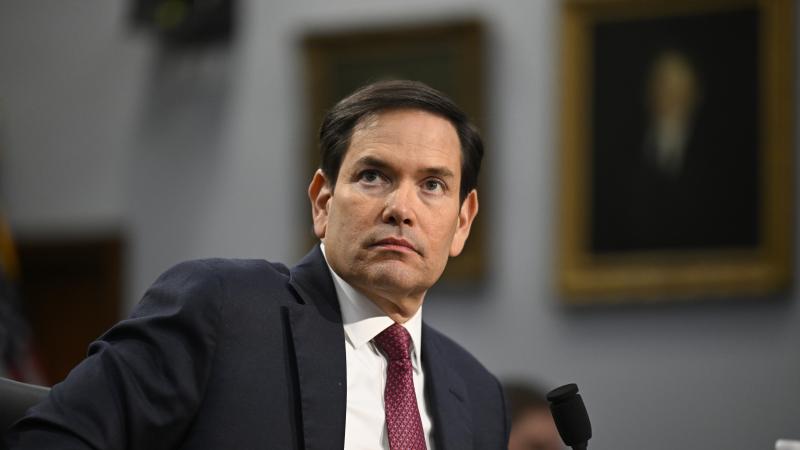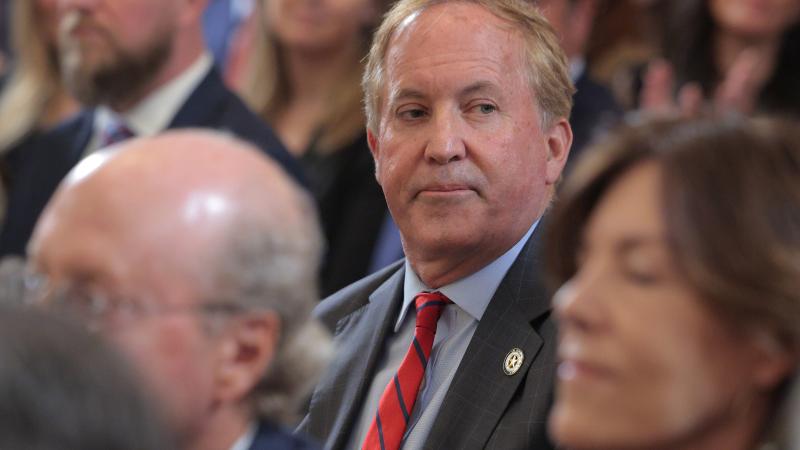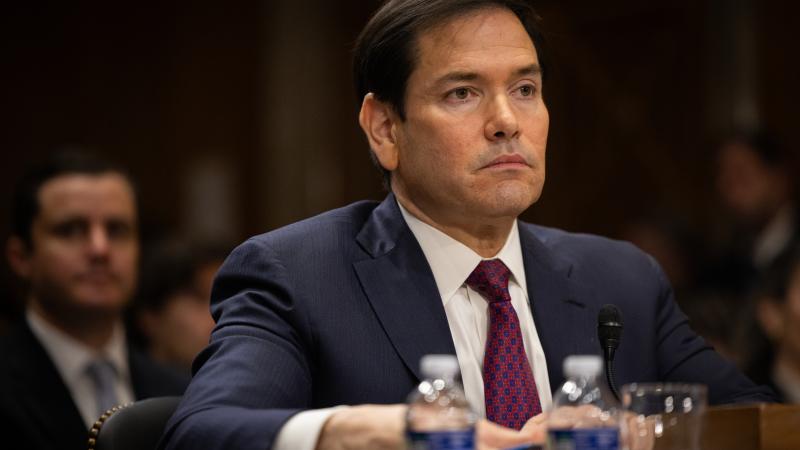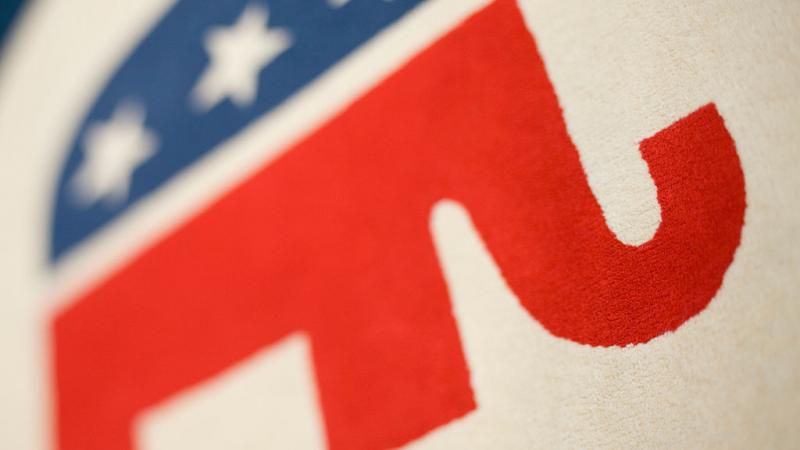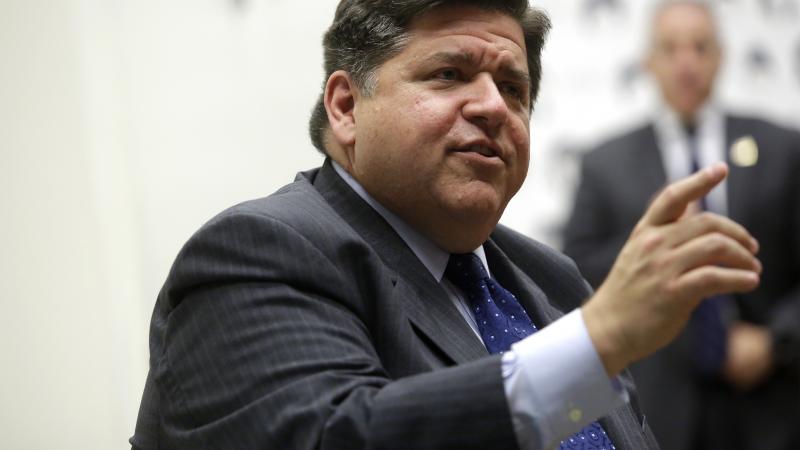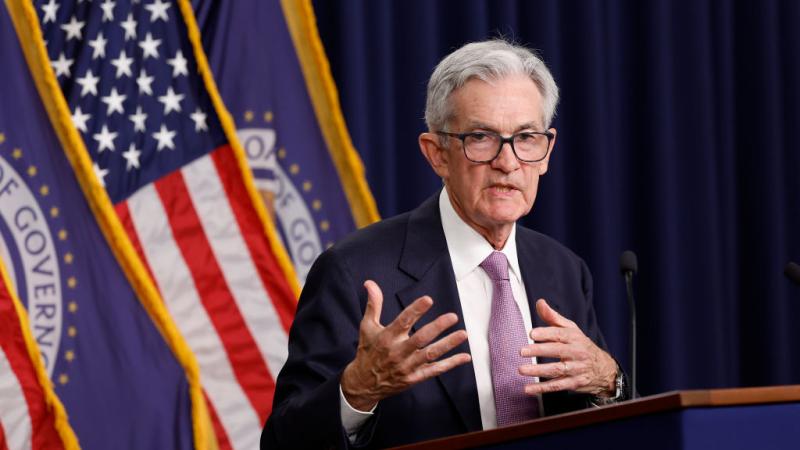Is 'Let's Go Brandon' protected by First Amendment in school? Appeals court judges unsure
Trump nominee on 6th Circuit panel grills school district lawyer on why "f--- Joe Biden" euphemism is more offensive than display of Confederate flag in school, explicitly protected by Supreme Court.
Public schools may have found a loophole in a 1969 Supreme Court decision that protects students' nondisruptive political speech: Declare it "profane" even if the late comedian George Carlin excluded it from his famous "7 Words You Can Never Say on Television."
The 6th U.S. Circuit Court of Appeals grappled with the meaning of profanity at a hearing Thursday in a First Amendment lawsuit by two unnamed students banned from wearing "Let's Go Brandon" sweatshirts to their Michigan middle school, referring to the media-created euphemism for a profane chant against then-President Biden at a NASCAR race.
U.S. District Judge Paul Maloney, nominated by President George W. Bush, issued summary judgment to Tri County Area Schools last summer, finding that school officials "reasonably interpreted the phrase as containing a profane message" that can be prohibited under the 1986 precedent Fraser, which involved a "graphic sexual metaphor" in a school campaign speech.
If a school district can declare a phrase used in several congressional floor speeches to be "lewd, indecent, vulgar, or profane" under its dress code, the Vietnam War-era precedent Tinker that protects nondisruptive school protest is dead letter, the plaintiffs' lawyer, argued Conor Fitzpatrick, of the Foundation for Individual Rights and Expression.
The district "ignored centuries of history and tradition" in the English use of expurgated profanity, "from a radio edit of a hit song" to kids saying "h-e-double hockey sticks," Fitzpatrick said.
Its argument would turn the family-friendly pop song cover brand Kidz Bop into "censorable profanity" and let schools punish students who yell "fudge" when they hurt themselves at recess, he told Judge Karen Nelson Moore, who was astonished by Fitzpatrick's implication that congressional speeches were the legal yardstick for school propriety.
School district lawyer Annabel Shea spent much of her argument beating back questions by President Trump-nominated Judge John Bush, who spoke twice as often as his peers on the panel, about why "Let's Go Brandon" was worse in school than nondisruptive displays of a Confederate flag, another in-school political expression protected by SCOTUS.
Fellow Trump-nominated Judge John Nalbandian appeared to be the swing vote in oral argument, eschewing "unlimited discretion" for administrators to decide what's profane but joining President Clinton-nominated Moore in not wanting to tightly tie their hands.
He questioned whether the Pacifica precedent, which let the Federal Communications Commission regulate "indecent" broadcast speech such as Carlin's monologue, should limit what school administrators can prohibit. Profanity "trumps the political nature of the speech," Nalbandian told Fitzpatrick.
Nalbandian's questions also suggested school administrators would get qualified immunity from personal liability even if a panel majority ruled they violated the First Amendment.
Why would it be "obvious" they were violating "clearly established" precedents, Nalbandian said, rattling off a bevy of confusing SCOTUS rulings on student speech when Fitzpatrick claimed that Tinker established a right to "wear political apparel to school" and "no reasonable official could deem a non-profane slogan ... to be profane."
'No one was advocating having sex with the president'
The judges started with caution in referring to the crude phrase underlying the case, though Bush only used the "Brandon" formulation and never approached the f-word.
Moore and Nalbandian used various expurgated versions of "f— Joe Biden," from "f dot dot dot" to "f with asterisks." Moore grew tired of censoring herself halfway through and said the swear word several times in full, at which point Shea also switched to "f—."
The judges went so far as arguing with one other to what degree "Brandon" might be profanity, thus leaning toward the Fraser precedent and away from Tinker.
Tri County's argument would let districts ban students from referring to the Vietnam War-era SCOTUS precedent Cohen, which overturned a California law used to prosecute a man wearing an "f— the draft" jacket, by wearing a jacket that reads "Cohen's Jacket," Fitzpatrick said.
He noted the 9th Circuit struck down a school district that banned students from wearing "scab" buttons to protest replacement teachers, prompting Moore to ask how "scab" is vulgar. That's the point, Fitzpatrick responded: The district claimed it was to ban the speech.
Bush contrasted the anti-Biden message with the sexually graphic speech in Fraser: "No one was advocating having sex with the president" like the "code" in the school campaign speech, just an "emphasis of disfavor." Moore retorted that "Brandon" is indeed vulgar code.
While Shea told the panel the school had no problem with political expression by students, as evidenced by letting them wear Make America Great Again hats, Bush had trouble believing that a sexual epithet was worse than the racial epithet implicit in a Confederate flag display.
The judge emphasized "Brandon" was used "throughout society" and even referenced humorously in the "Dark Brandon" Biden campaign meme. "Can't that inform our judgment" on what's reasonable for a school administrator to ban, he asked Shea, invoking SCOTUS precedent on parental involvement in school decisions.
Bush pressed Shea on whether the district could ban "fud" on a shirt and how that wasn't the same "innuendo" as Brandon. She said the latter is "implied profanity," but Bush said the political nature of the expression might change the constitutional analysis.
Since the individual defendants would still get qualified immunity if the 6th Circuit ruled that the Tinker precedent should apply to the case, it does not need to remand to Judge Maloney for consideration, Shea said. Bush countered her again: If Fraser is the wrong standard, qualified immunity under Tinker is still in play.
The Facts Inside Our Reporter's Notebook
Videos
Links
- "7 Words You Can Never Say on Television."
- hearing Thursday
- two unnamed students banned from wearing "Let's Go Brandon" sweatshirts
- media-created euphemism for a profane chant
- summary judgment to Tri County Area Schools
- precedent Fraser
- Kidz Bop
- Pacifica precedent
- Vietnam War-era SCOTUS precedent Cohen
- 9th Circuit struck down a school district
- "Dark Brandon" Biden campaign meme
